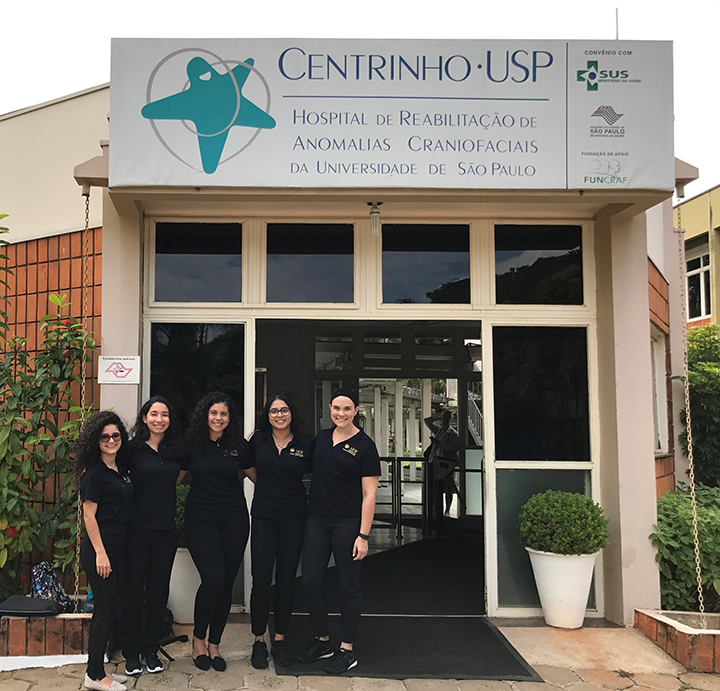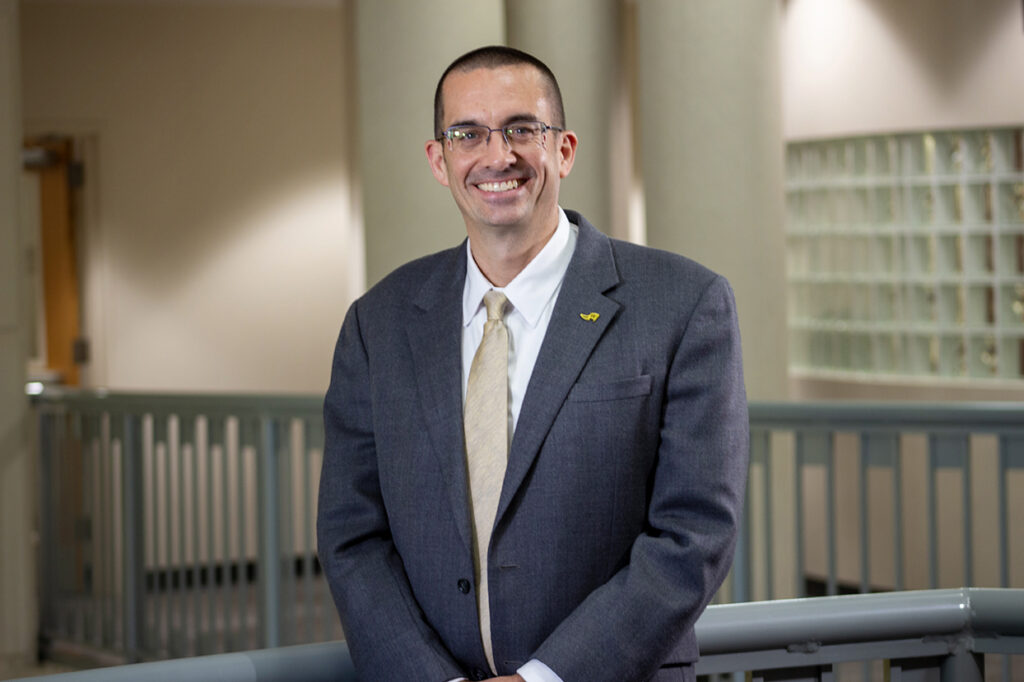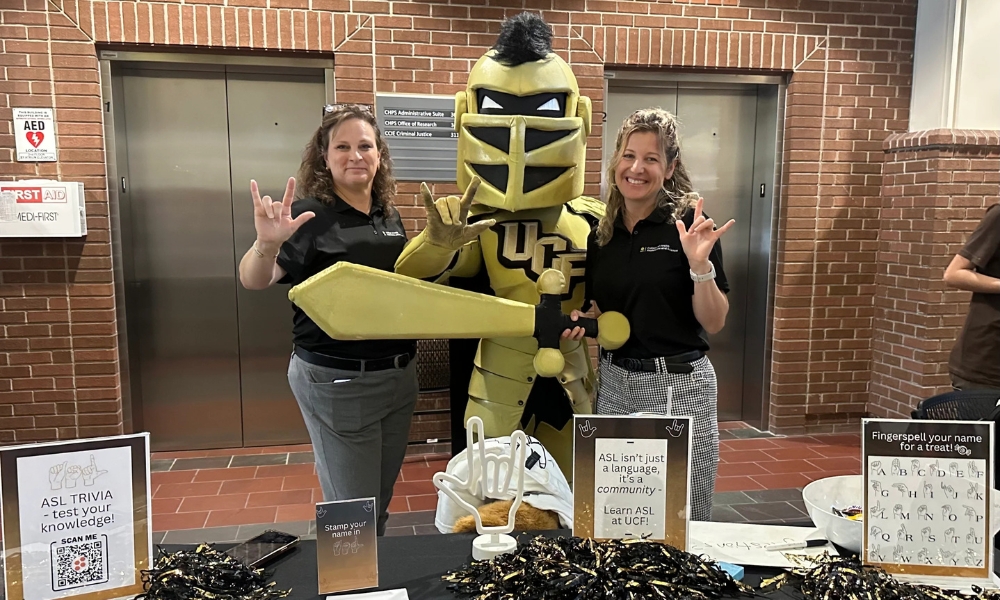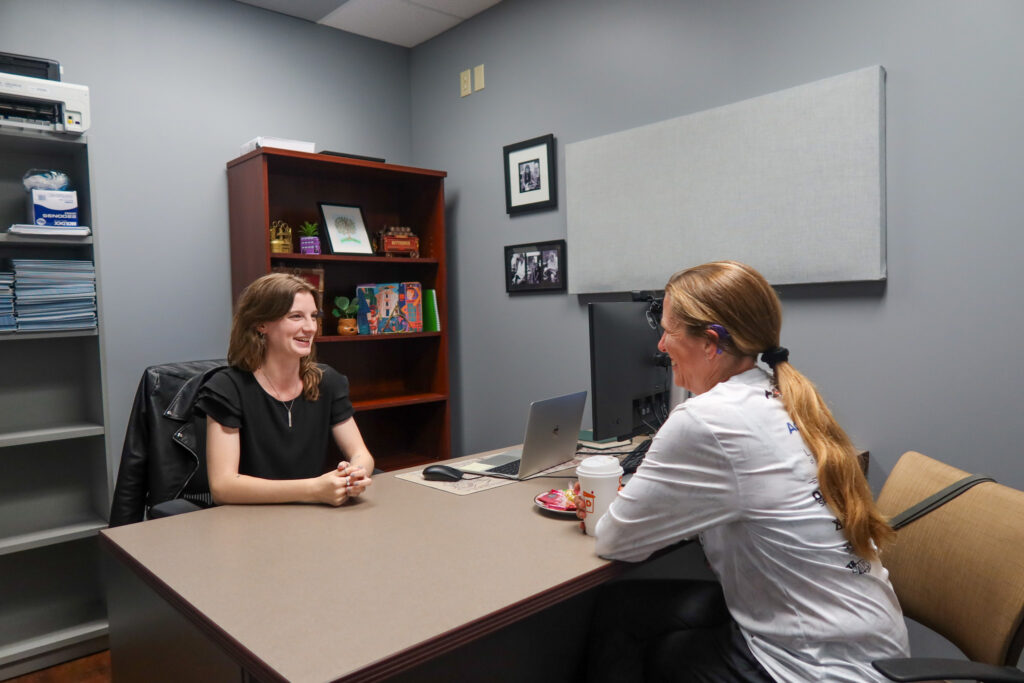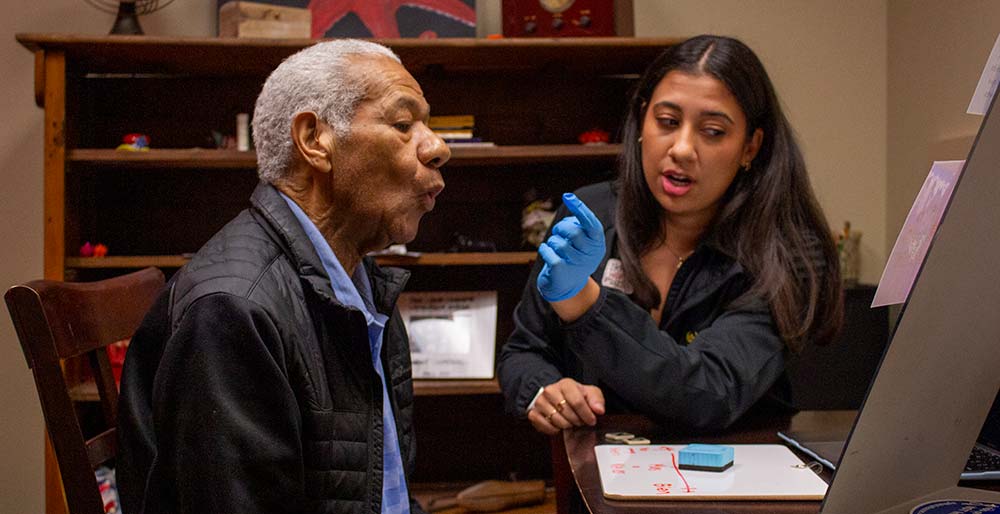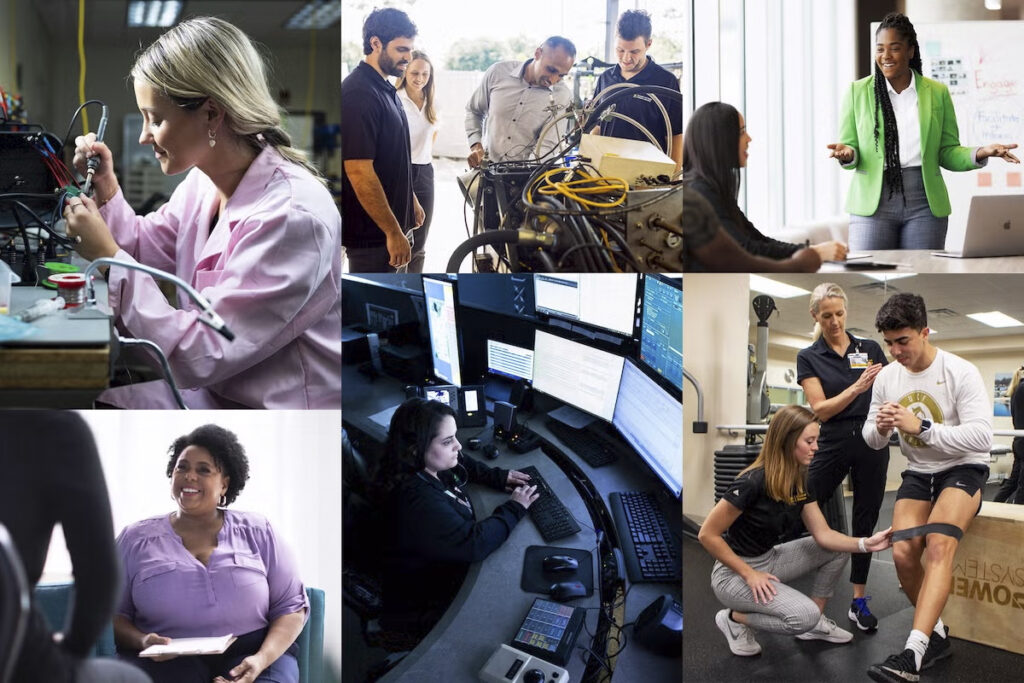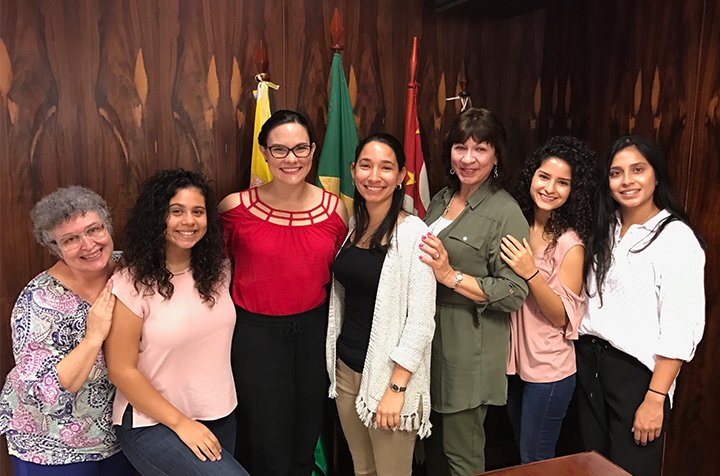
After an eight-hour flight and a five-hour bus ride, five UCF communication sciences and disorders graduate students and their faculty advisor were eager to begin their 2017 spring break in Bauru, Brazil, participating in a study-abroad clinical experience of a lifetime.
Their ultimate destination? The largest craniofacial treatment center in the world, Centrinho — The Hospital for the Rehabilitation of Craniofacial Anomalies of the University of São Paulo (part of the Bauru School of Dentistry).
From March 13-17, the students were immersed in treatment and therapies for children and adults with cleft lip and palate and hearing impairment. At this renowned center, they learned firsthand how these congenital anomalies and deafness not only affect physical appearance, but often lead to complications in the ability to hear, speak, eat and even breathe effectively.
Each morning, Centrinho’s waiting room was filled with children and their families who came from all over Brazil, a country about as large as the continental United States, for surgeries to close cleft palates or cleft lips, installation and adjustment of cochlear implants for hearing loss, therapy to restore the ability to speak intelligibly, and other specialized therapies and treatments. The UCF team stayed in student housing and studied with USP students, accruing clinical hours in assessment and treatment of children with communication disorders.
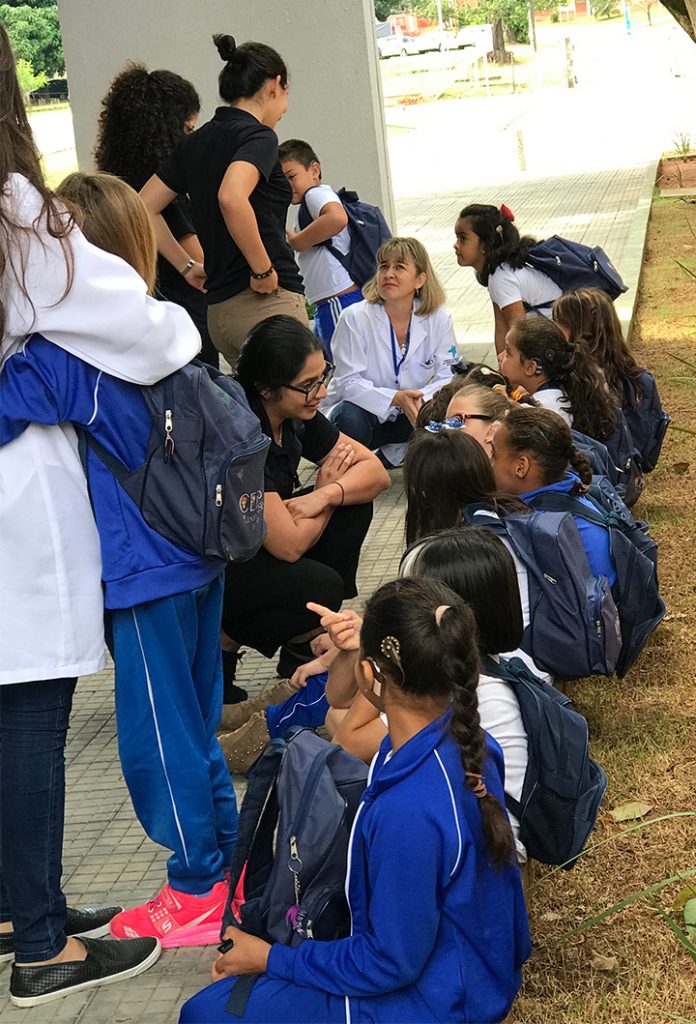
As part of their preparation to become speech-language pathologists, the students participated in family-centered interventions, learned how to make ear molds, were involved in an intensive speech therapy program, observed inter- and transdisciplinary team interactions, and discussed evidenced-based research and its’ application in treatment. They worked together with Brazilian speech-language pathologists, audiologists, plastic surgeons, ENTs, dentists, psychologists, art educators, occupational therapists and social workers, and they had daily discussions to reflect on what they had learned.
“Every day that I participated in the USP study abroad, I became more enamored and passionate about the field of speech-language pathology,” said UCF graduate student Kaira Clapper. “The students at USP in the Fonioaudiologia [speech therapy] program shared their knowledge and clinical strategies as we worked alongside them … and as communications disorders professionals, we shared common goals.”
Linda I. Rosa-Lugo, associate professor and director of the UCF Listening Center, was the faculty leader and inspiration behind the trip. She partnered with Jeniffer Dutka, a faculty member with the speech therapy department and the craniofacial center at USP, who had been a colleague in Florida before returning to her native Brazil. She also partnered with Michelle Bourgeois from the University of South Florida, who brought seven undergraduate students on the adventure.
This study abroad experience was the culmination of years of work to finalize an affiliation agreement between the Bauru College of Dentistry at USP and UCF’s College of Health and Public Affairs to foster research collaboration and student exchange in communication sciences and disorders. Faculty members and students from both institutions are focusing their efforts on aphasia, craniofacial anomalies, and deafness and cochlear implants.
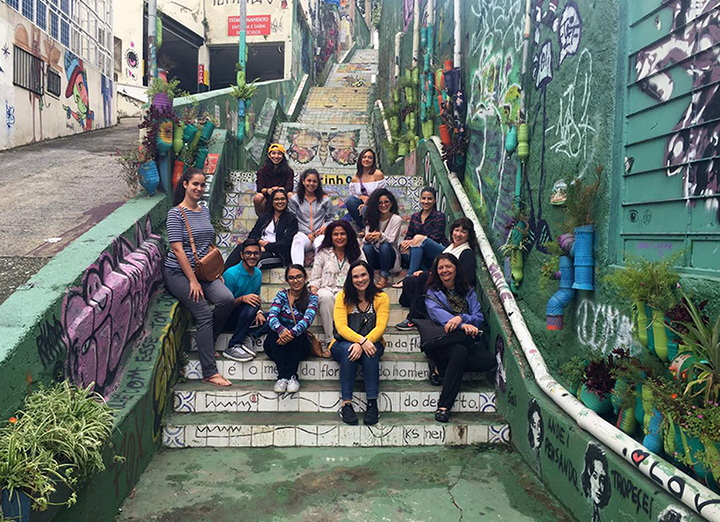
In recent years, USP sent two groups from Brazil to visit the college. The March 2017 program was the first time UCF reciprocated, in part because the complexity and costs of the program were intensified since it was a clinical experience, which required supervision in accordance with the American Speech-Language-Hearing Association.
“This program happened because a lot of people felt a commitment to student preparation, including the UCF Global office” Rosa Lugo said. “Logistically, study abroad programs can be very challenging, and that commitment keeps you going.”
She noted that the program also contributed to two of UCF President John Hitt’s key goals: provide international focus to our curricula and research programs, and be America’s leading partnership university.
Rosa-Lugo encourages all students to participate in a study abroad program, which can provide new insight and open their eyes to the potential of practicing their profession outside the United States.
“Students need to see the strengths of other countries,” she said. “They need to get out of their comfort zone, be open to new experiences and reflect on how those experiences are going to mold them not just professionally, but personally.”
Inspired by the success of this trip, Rosa-Lugo plans to bring more students to Brazil in the future so they, too, can expand their horizons.
Photos courtesy of Linda I. Rosa-Lugo
